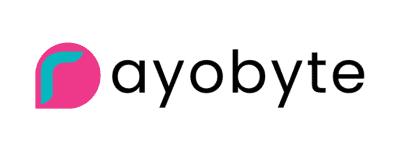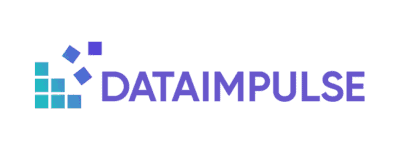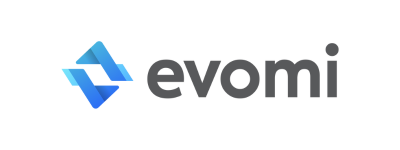The Best Shared Proxy Providers of 2026
Sometimes, there’s no need to invest in expensive dedicated or residential IPs. If you’re accessing unprotected websites, the best shared proxies can deliver comparable performance at a fraction of the cost. Some providers go a step further by offering automatic rotation of IP addresses, making them even more convenient.
If you’re in the market to buy cheap shared proxies, you’ve come to the right place. We’ve carefully selected the best shared proxy providers to ensure you get the top value for your money. Here are our top picks.

Best Shared Proxy Providers – Quick Summary:

1. Webshare – performant proxies with flexible subscription options.

2. Decodo (formerly Smartproxy) – 100,000 rotating proxies with unlimited threads.

3. Oxylabs – shared rotating proxy pools for web scraping.

4. DataImpulse – cheap gigabytes and many rotating IPs.

5. Evomi – great base price with unique extra features.
Strong Options We Haven’t Tested Recently

Bright Data – shared IPs with the most customization.
Key Points about Shared Proxies
- Shared proxies are middlemen IPs that multiple people use at the same time.
- Though any proxy type can be shared, the name mostly refers to datacenter IPs.
- They’re the cheapest option available: an IP costs 2-3 times less compared to dedicated proxies. When priced by traffic, you’ll pay 5-20 times less compared to residential addresses.
- Shared proxy servers are simple to block if a website tries. Still, they’re a fine choice for hiding your IP, unblocking geo-restricted content, and scraping unprotected websites.
- Shared proxies also provide an affordable testing ground for beginners who want to try out proxies for their use case.
You can learn more in our guide on shared proxies.
Best Shared Proxy Providers: A Comparison
| Provider | Key features | Pricing | Best for |
| Webshare | Formats: IP list, rotating pool Locations: 50+ Trial: 10 free IPs |
$2.99 for 100 IPs & 250 GB ($0.03/IP) | Affordable, customizable shared proxies. |
| Decodo | Formats: optionally rotating IP list, rotating pool Locations: 15+ Trial: 14-day money-back guarantee |
Rotating pool: $30 for 50 GB ($0.6/GB). IP list: $3.5 for 100 IPs ($0.035/IP). |
Beginner-friendly use cases and web scraping. |
| Oxylabs | Formats: IP list, rotating pool Locations: 8 Trial: 5 free IP, 7-day trial for businesses |
Rotating pool: $50 for 77 GB ($0.65/GB). Shared list: $12 for 10 IPs ($1.2/IP). |
Enterprise-level web scraping and geo-targeting. |
| DataImpulse | Formats: rotating pool Locations: 100+ Trial: $5 for 10 GB ($0.5/GB) |
$50 for 100 GB ($0.5/GB) | Large enough to sustain major operations and cheap enough to challenge the major players. |
| Evomi | Formats: rotating pool Locations: 150+ Trial: Yes |
$13.35 for 30 GB ($0.45/GB) | For those who an upgrade over entry-level providers. |
| SOAX | Formats: rotating pool Locations: 6 Free Trial: $1.99 for 3 days and 400 MB |
$4 for 5 GB ($0.8/GB) | Strong competitor to your mid-range and large providers. |
| Rayobyte | Formats: IP list, rotating pool Locations: 4 Trial: 2-day money-back guarantee |
Shared: $1 for 1 IP. |
Cost-conscious users and small-scale tasks. |
| Bright Data | Formats: IP list, rotating pool Locations: 98+ Trial: 7-day trial for businesses, 3-day refund for individuals |
Shared list: $14 for 10 IPs ($1.4/IP). Rotating pool: $0.6/GB. |
Professionals needing advanced customization. |
The Best Cheap Shared Proxy Providers
1. Webshare
Performant proxies with high customizability.

Get 50% off your first purchase.

Proxy formats:
IP list

Locations:
50+

Protocols:
HTTP(S), SOCKS5
- Support: 24/7 chat, email, Slack
- Extras: 500+ threads, unlimited bandwidth (optional), network priority (optional), optional rotation with every request, extensive documentation
- Free trial: yes
- Pricing starts from: $2.99 for 100 IPs & 250 GB ($0.03/IP)
Webshare has a robust infrastructure of shared datacenter proxies. The service includes all the necessary features, flexible pricing, and reliable infrastructure performance. The IPs come in the form of a list, and you can customize them to a great extent. You can choose a mixture of locations at the point during purchase, set a bandwidth limit and configure super flexible proxy replacements (up to every five minutes).
However, many of the advanced Webshare features are only available a la carte. That way, the low initial cost can really balloon with additions.
Read the Webshare review for more information and performance tests.
2. Decodo (formerly Smartproxy)
100,000 rotating proxies with unlimited threads.

Try 100 MB for free.

Proxy formats:
IP list, proxy pool

Locations:
15+

Protocols:
HTTP(S), SOCKS5
- Support: 24/7 via chat, email
- Extras: up to unlimited bandwidth, monthly refresh, optional rotation with every request
- Free trial: 14-day money-back guarantee
- Pricing starts from:
– Rotating pool: $30 for 50 GB ($0.6/GB)
– Shared: $3.5 for 100 IPs ($0.035/IP)
Decodo is known for its residential proxies, but it sells other types as well – shared datacenter IPs included. The provider gives its customers two choices: buy a plan and pay for a certain number of IPs and bandwidth, or only for traffic. You can choose from 100,000 IPs from 18 countries in Europe, APAC, or the Americas.
The shared list lets users pick the locations at purchase while the rotating pool grants full access to all IPs. Both support static or rotating sessions, but only the list gets access to IP refreshes.
Read the Decodo review for more information and performance tests.
3. Oxylabs
Shared rotating proxy pools for web scraping.


Proxy formats:
Proxy pool, IP list

Locations:
27 locations

Protocols:
HTTP(S), SOCKS5
- Rotation: every request, sticky sessions for as long as available
- Support: 24/7 support via live chat, email
- Extras: unlimited bandwidth, threads & domains
- Free trial: 5 free IPs, 7-day free trial for businesses, 3-day refund for individuals
- Pricing starts from:
– Rotating pool: $50 for 77 GB ($0.65/GB)
– Shared list: $12 for 10 IPs ($1.2/IP)
Oxylabs offers shared proxies in 27 locations including the US, as well as some European and Asian countries. The shared pool has around 40,000 IPs; they can rotate with every connection request, or you can establish sticky sessions. The shared list comes with unlimited data (though a “fair use” policy kicks in at 100GB/IP/month) while the proxy pool is priced based on data use.
The infrastructure pairs solid connection speed with good success rate, while the overall download speed is fast enough for high-definition video. Overall, Oxylabs is a powerful option for web scraping, despite a steeper starting price.
Read the Oxylabs review for more information and performance tests.
4. DataImpulse
Cheap gigabytes and many rotating IPs.

Proxy formats:
Proxy pool

Locations:
100+

Protocols:
HTTP(S), SOCKS5
- Rotation: every request, sessions between 1-120 mins
- Support: live chat, 24/7 via email
- Extras: API for resellers, many targeting/filtering options
- Free trial: $5 for 10 GB ($0.5/GB)
- Pricing starts from: $50 for 100 GB ($0.5/GB)
DataImpulse’s datacenter pool has 100+ locations to choose from. Plus, there’s a lot of IP variety, as these proxies are sourced from people. So in addition to that coverage, DataImpulse offers many targeting options: countries, cities and ASNs. This includes picking multiple locations or ASNs at the same time – or ignoring the countries or ASNs you don’t like.
Your traffic never expires, which is both nice to have and very attractive if you’re thrifty, incentivizing you to stick with DataImpulse for the long run.
All in all, while DataImpulse can’t yet run with the big dogs, it definitely gives us reasons to include it in the list.
Read the DataImpulse review for more information and performance tests.
5. Evomi
Great base price with unique extra features.

Proxy formats:
Proxy pool

Locations:
150+

Protocols:
HTTP(S), SOCKS5
- Rotation: every request, 1-120 mins, long sessions
- Protocols: HTTP(S), SOCKS5
- Support: 24/7 via live chat
- Extras: Pay-as-you-go, extensive documentation
- Free trial: yes
- Pricing starts from: $13.35 for 30 GB ($0.45/GB)
Evomi is a fresh – circa 2024 – Swiss proxy provider that’s big on ethics and responsibility. Its proxy network is sourced through a bandwidth-sharing application and an SDK, covering 150+ locations.
Where Evomi is less than forthcoming is pricing. If we’re talking about shared datacenter proxies, the landing claims that the PAYG option is $0.45 per GB with no commitments. Yet once you try to order said option, you’ll find out that you can’t get less than 30 GB. A weird obfuscation considering that it’s still cheaper than leading competitors.
Read the Evomi review for more information and performance tests.
6. SOAX

Use the code proxyway35 to get 35% off.

Proxy formats:
Proxy pool

Locations:
6

Protocols:
HTTP(S), SOCKS5
- Rotation: every request, 1 minute-24 hours, sticky
- Protocols: HTTP(S), SOCKS5
- Support: 24/7 support via live chat, email, phone, or Telegram
- Extras: reporting API, customer success manager
- Free trial: $1.99 for 3 days and 400 MB
- Pricing starts from: $4 for 5 GB ($0.8/GB)
SOAX offers its shared datacenter proxies in 6 locations (far cry from 195+ for other types, but much better than the provider’s dedicated datacenter proxies that are limited to US). The filtering is fairly comprehensive, down to ASN level.
The real SOAX weaknesses lie with the API that’s only meant for reporting and the confusing structure of supporting documentation. On the other hand, the latter seems to work quite well with the support chat system, able to point at specific articles as needed.
Read the SOAX review for more information and performance tests.
7. Rayobyte
Proxies with flexible pricing.


Proxy formats:
IP list, rotating pool

Locations:
4

Protocols:
HTTP, SOCKS5
- Rotation: static (shared); every request, sticky sessions for up to 2 hours (pool); 10-100 mins (IP list)
- Support: 24/7 support via live chat, email, tickets
- Extras: extensive documentation
- Free trial: 2-day money-back guarantee for any package of 5 datacenter proxies
- Pricing starts from:
– Shared: $1 for 1 IP
– Rotating list: $3.75 for 1 port with 20 IPs
– Rotating pool: $0.30 for 1 GB
Rayobyte claims to be one of the largest proxy providers in the US. However impressive their IP totals may be, their location options leave much to be desired, with our research showing that rotating proxies offer 4 countries, with the number increasing to 9 with semi-dedicated IPs. Meanwhile, Rayobyte’s documentation indicates only 3 countries.
Generally speaking, any benefit or drawback of what Rayobyte offers depends on the service in question: rotation allowances, supported protocols, locations, etc., are wildly different depending on what you’re buying. The speed isn’t that great, either.
Read the Rayobyte review for more information and performance tests.
Strong Options We Haven’t Tested Recently
Bright Data
Rotating and static shared IPs with the most customization.

Add up to $500 to your account and get double the amount.

Proxy formats:
IP list, rotating pool

Locations:
98+ locations

Protocols:
HTTP(S), SOCKS5
- Support: 24/7 support via tickets, email, phone, WhatsApp, Telegram
- Extras: API, extensive documentation
- Free trial: 3-day trial, $5 30-day trial
- Pricing starts from:
– Shared: $14 for 10 IPs ($1.4/IP)
– Rotating pool: $0.6 per GB
Bright Data offers regular shared proxies where one pays for IP or a rotating pool priced per traffic. Its documentation claims that the datacenter proxies come from 98+ locations across the globe, giving you access to 1.3M IPs.
As one of the top providers on the market, Bright Data understands that it has many varied users with a vast pool of needs. Therefore, its documentation includes a lot of instructions on how to integrate the proxies and the API with third-party services.
Read the Bright Data review for more information and performance tests.

Frequently Asked Questions About Shared Proxies
Shared proxies are IP addresses that multiple people use at the same time. This makes them less reliable and slower than dedicated proxies, but also much cheaper and more suited for tasks where having a variety of IPs is more important than the connection quality.
Yes. Providers like Smartproxy and Luminati give access to backconnect proxy servers. They automatically rotate your IP after some time.
They’ll likely be slow and overused. A free shared proxy can also serve you fake ads or even steal your personal data. Be especially careful with HTTP proxies because they send all data in plain text.

